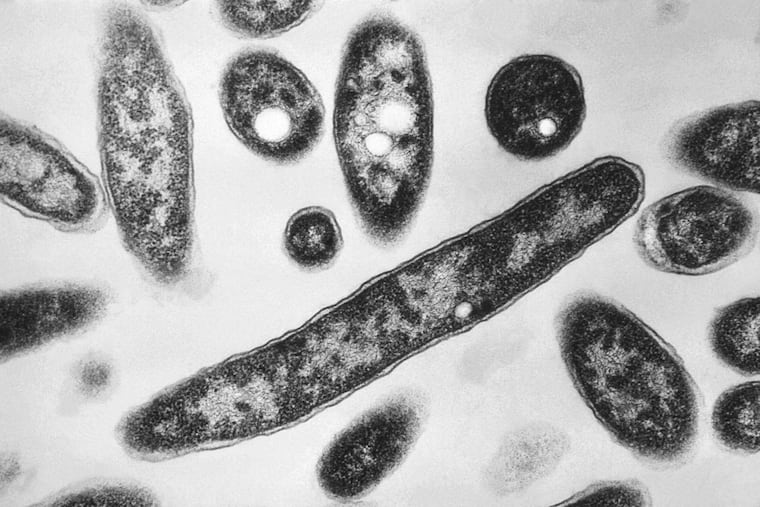4 cases of Legionnaires’ disease reported in Pennsauken
Investigators are trying to determine how and where the people got infected. The source could be outside Pennsauken.

Camden County and state health authorities on Friday reported a cluster of Legionnaires’ disease — a type of pneumonia — in four Pennsauken residents.
Camden County Health Officer Paschal Nwako said that officials are trying to determine how and where the people got infected so they can prevent further transmission. The source could be outside Pennsauken, he added.
One person is hospitalized, while the other three are recovering at home, Nwako said. The first case was confirmed in October. They all live less than a mile away from one another, but did not report being at the same places before becoming sick.
“Right now, the overall risk of Legionnaires’ disease among residents or visitors to Pennsauken is low,” Nwako said in a statement.
Most healthy people exposed to the bacteria called Legionella do not develop the disease, Nwako said.
However, people over age 50, especially smokers, or people with certain medical conditions, including weakened immune systems, chronic lung disease, or other chronic health conditions, are at increased risk for Legionnaires’ disease, Nwako said.
The symptoms are similar to those of COVID-19.
People who develop a fever, cough, shortness of breath, muscle aches, and headache are advised to visit their health-care provider for further evaluation, officials said.
People who develop symptoms within two weeks of visiting or working in Pennsauken are also advised to seek medical attention, officials said.
Legionnaires’ disease is not spread person-to-person, officials said, but instead it is contracted by breathing in small droplets of water containing Legionella bacteria.
This water can come from cooling towers, like air-conditioning units for large buildings, hot tubs, cooling misters, decorative fountains, and plumbing systems, officials said.
Home air-conditioning units do not use water to cool, so are not a risk for Legionella growth, officials said.
Philadelphia is notoriously linked to the disease. In 1976, attendees of an American Legion convention were stricken and 34 people died.
This summer, an outbreak of Legionnaires’ disease at a nursing home in New York City killed five people, authorities confirmed last month.